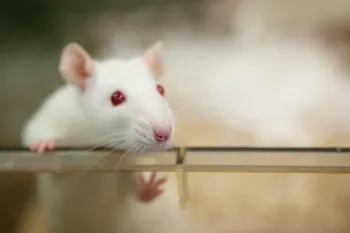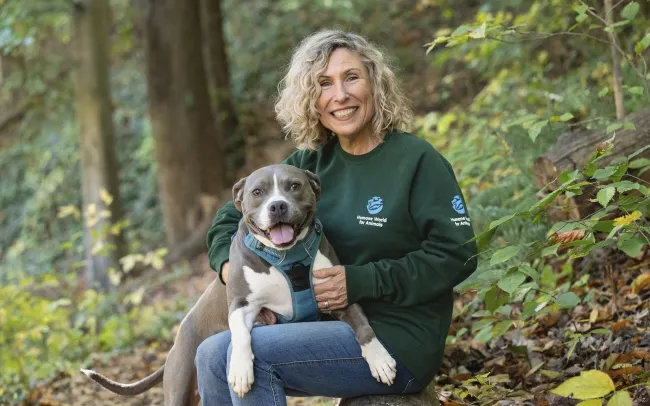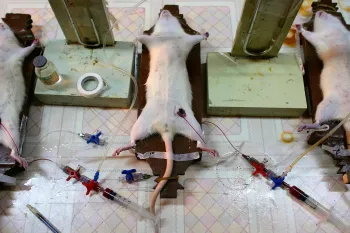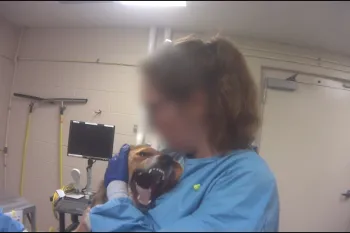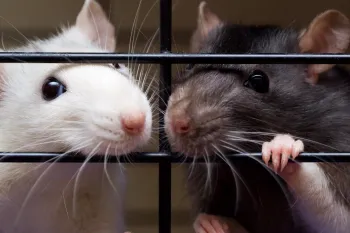Earlier this month, Brazil’s Chamber of Deputies voted to ban the sale of cosmetics that have been tested on animals. Brazil is one of 45 countries and 12 U.S. states to limit or ban this cruelty.
I am immensely proud of our Brazilian team, as this recent milestone outcome is the result of our decade-long campaign. At Humane World for Animals, we're proud to play an instrumental role in these and other groundbreaking advancements toward a more compassionate future.
“This law demonstrates that change is possible when everyone works together,” Antoniana Ottoni, our senior government affairs specialist in Brazil, said. “Brazilians can finally buy cosmetics knowing they weren't tested on animals; a true cause for celebration.”
The new ban is just one way in which Brazil is rapidly emerging as a leader in humane and innovative science.
In December 2024, Brazilian regulators formally accepted a test that spares rabbits from suffering. Used since the 1950s, the rabbit pyrogenicity test can now be replaced by a new method, the monocyte activation test, to check medical products for substances that could trigger fever. When the time and cost required to import test kits from Europe or North America still presented a barrier to change, we worked on a solution. Following discussions with our team of experts, the Brazilian Ministry of Health recently approved the use of leftover donated blood to supply these tests. This innovation helps to modernize Brazil’s medical testing while hastening change for animals.
Across Brazil, we’ve been promoting the free, online training course we co-developed with cosmetic and chemical manufacturers and non-animal method developers through the Animal-Free Safety Assessment Collaboration. This course helps build greater understanding and confidence in animal-free methods, which helps support compliance with cosmetic animal testing bans and a growing number of national chemical laws that limit animal testing to a “last resort.” We successfully negotiated for such a provision in Brazil’s new chemicals law and are actively working with policymakers on implementing regulations to further restrict the potential for new animal testing.
We are also working with Brazil’s biomedical community to position human-based, non-animal methods within the country’s forthcoming National Strategy for Science and Technology. In March, we hosted a Biomedical Research for the 21st Century (BioMed21) workshop in collaboration with the Ministry of Science and Technology that brought together scientists, industry and research funding bodies to discuss emerging methods such as organoids, organs-on-chips and artificial intelligence tools that hold the potential to advance our knowledge of disease and public health while reducing the reliance on the use of animals in research. The strong consensus built at our workshop indicated Brazil’s growing support for animal-free science.
These victories are just the beginning. Our global team of experts is currently gearing up to present at the 13th World Congress on Alternatives and Animal Use in the Life Sciences, taking place in Rio de Janeiro in August. This global event brings together pioneers from across the world to accelerate the transition toward animal-free research and testing.
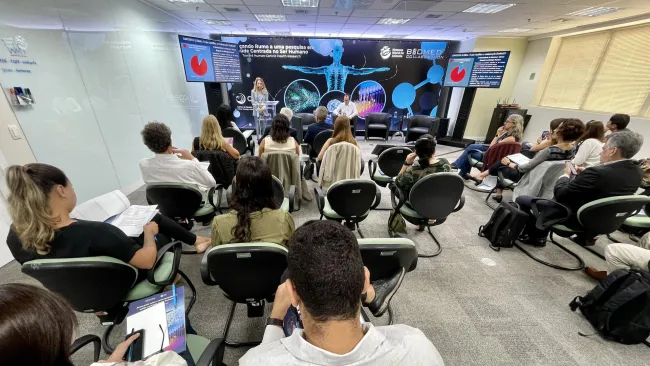
Larissa Nunes
With the remarkable advances in technology that affect every part of life all over the world, it has been astounding that the transition away from animal testing and research has not been more rapid. New, technologically advanced methods that are more relevant to human biology spare countless animals from immense suffering. The progress in Brazil shows that real, positive change for animals can happen.
We are determined to create a more humane world—a world where testing and research methods that do not depend upon animal suffering are not only the norm but the gold standard. Brazil is helping set a new benchmark for modern science, reaffirming our conviction and energizing our ongoing initiatives to create a world where scientific innovation thrives without cruelty.
